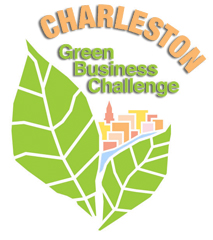A $500k, 2-year Project funded by The Home Depot Foundation’s Sustainable Cities Institute
CHARLESTON April 29, 2013 – The Sustainability Institute (SI) today released their CharlestonWISE Impact Project report, sharing their findings regarding energy efficiency with the Charleston community. The project conducted needed research and market analysis to better understand the current condition of Charleston’s single-family residential housing stock and the potential for energy efficiency improvements. The Project provided valuable support for the growth and development of the ongoing CharlestonWISE program through data collection, community outreach, market analysis and workforce development. The report can be found at http://www.sustainabilityinstitutesc.org/downloads/CWIP__Final_Report.pdf. SI partnered with the City of Charleston and other key organizations to design a program that utilized a collective impact approach and delivered on goals designed to further advance energy efficiency measures in Charleston.
- Implemented a city-wide energy efficiency partnership by conducting energy assessments on 152 single-family residential homes within the City of Charleston, including historic, low- to moderate-income households, and affordable housing units.
- Performed energy efficiency retrofits on 17 low- to moderate-income homes to achieve significant utility savings and improve health and comfort issues.
- Provided substantial and verifiable data on the current condition of Charleston’s residential building stocks, best practices for energy efficiency retrofits, and savings potential.
- Created a specialized curriculum to teach energy efficiency renovations for historic structures in hot humid climates; and enhance the City’s Green Collar Workforce and energy efficiency services industry through industry growth and job opportunities.
- Provided data needed to reduce the environmental impact of Charleston’s built environment, as well as arm Charleston’s building industry with the skilled labor force and resources it needs to integrate energy efficiency as a standard of building practices.
The Sustainability Institute (SI) is an award-winning, nonprofit, 501c(3) organization with a mission of empowering South Carolina communities to transform our homes and workplaces to conserve energy and reduce our overall environmental impact.
For over a decade, The Sustainability Institute has worked one person at a time to achieve energy efficiency in our community and thereby produce positive effects locally as well as on the global environment. Our programs create a win-win-win scenario because they work together to save energy costs, improve the environment, and create jobs. Our urgent focus is creating energy efficiency in the ‘built environment’ — the buildings where we live and work. Learn more at http://www.sustainabilityinstitutesc.org.
Project Case Studies:







